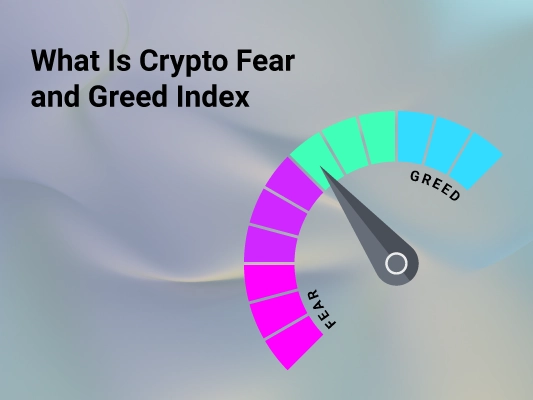[ad_1]
2021 was a banner year for Fumio Kishida: He held off the competition in the Liberal Democratic Party’s leadership race to take the Prime Minister’s Office, demonstrated his pluck by daring to dethrone a veteran LDP secretary-general and carried the party to a solid victory in the Lower House election despite what was expected to be an uphill battle.
But that’s 2021’s success and Kishida won’t be able to rest on those laurels for long, if at all.
The prime minister will face another stress test as the head of the LDP when voters head to the polls for the Upper House election, slated for the summer.
The omicron variant could also throw a wrench into his signature “new model of capitalism” initiative and other policy goals. Kishida will also need to decide how closely the LDP should cooperate with the right-leaning opposition party Nippon Ishin no Kai, particularly when it comes to constitutional amendment.
Ruling and opposition lawmakers, as well as the public, will pay close attention to whether Kishida’s flexible and down-to-the-earth demeanor can guide the nation through the public health crisis and economic downturn, while LDP members will be looking to see how he deals with political challenges and whether he can further cement his support base to ensure his administration’s longevity.
“We are starting to see some ‘weakness,’ but this ‘weakness’ is working not badly politically,” said Jun Iio, a professor of Japanese politics at the National Graduate Institute for Policy Studies, referring to Kishida’s willingness to change course on the ¥100,000 handouts to qualified households with children.
Ruling party leaders originally agreed to provide half of the amount in cash and the other half in coupons, but Kishida reversed that position on the first day of the Lower House budget committee debate in mid-December after complaints from municipal officials and protests from opposition parties.
“Regarding the ¥100,000 handout, he wavered and was unreliable, but people think it shows that Mr. Kishida is good at listening to others’ opinions,” Iio said. “The question is whether Kishida can establish a style of governance and keep it stable.”

Encouraged by the Lower House election victory and a thoroughly disappointing showing by the largest opposition party, Kishida went on the offensive with his policy proposals but avoided direct confrontation with opposition lawmakers.
That’s a significant contrast from recent leaders.
During his tenure, Prime Minister Shinzo Abe at times jeered and mocked the opposition, while Kishida’s predecessor, Yoshihide Suga, drew intense flak from opposing lawmakers for repeatedly reading from a script in a monotone voice, even if lawmakers had pressed for answers.
Instead, Kishida went into budget committee debates with what appeared to be a humbler approach. He explained the administration’s reversal on the handout was a result of listening to municipal government officials and debates among lawmakers.
Then, the day after a newspaper report revealed that the land ministry had overstated construction data for years, he ordered a third-party committee to investigate and submit findings within a month, proactively stifling attacks from opposition lawmakers.
“In this Diet session, I have explained my thoughts as carefully as I could,” Kishida said during a news conference on Dec. 21. “In order to be in line with the people’s feelings, we have made a bold political decision to change our policy on matters where we perceive it to be necessary. The important thing is to listen carefully to the thoughts of the people.”
Once ridiculed as an “indecisive man,” Kishida swiftly introduced drastic measures in response to the omicron variant. Within three days of the variant’s detection in South Africa in late November, he approved a ban on new entries by foreign nationals and even barred foreign residents from certain countries.
While the Japanese public tends to agree with stricter border controls — with 88% of respondents supporting the banning of new entries in a Nikkei poll in December — those who have been seeking to enter the country are upset with another set of restrictions.

The public at large appeared to be forgiving after a mishap over the transportation ministry’s request that airlines halt new bookings for flights to Japan. Despite his Cabinet’s approval ratings slightly edging down in recent Kyodo and Jiji polls, the numbers went up in Nikkei, Yomiuri and Asahi newspaper opinion surveys taken during December.
In the Nikkei poll conducted between Dec. 24 and 26, the Cabinet’s approval rating went up by 6 percentage points to 65%. Sixty-one percent of respondents also approved of the administration’s coronavirus response, the highest since the question first started to be asked in February 2020.
But those solid numbers could be in jeopardy if COVID-19 cases increase exponentially, and Kishida appears to be well aware that the severity of any outbreak will have a direct impact on his Cabinet’s approval rating, as was the case during the Suga administration.
“The issue for the time being will be whether Kishida can properly control the pandemic,” said Takuma Ohamazaki, a political analyst and CEO of election consulting firm J.A.G Japan. “The coronavirus response and the omicron variant will directly affect the direction of the administration.”
Even setting aside the pandemic, Kishida’s calendar is packed. In an upcoming regular parliamentary session, expected to last around 150 days, the prime minister will be under pressure to deliver tangible results ahead of the Upper House election in the summer, especially raising wages for nurses and caregivers, as identified by Kishida as a priority in his “new model of capitalism” initiative.
On top of that, Kishida will seek to visit Washington to meet with U.S. President Joe Biden to showcase the Japan-U.S. alliance amid China’s growing assertiveness in the western Pacific.
“There is a possibility that something will happen that Mr. Kishida cannot control, and whether he can respond properly to whatever that may be will have implications for his ability to govern thereafter,” Iio said.
A lot will hinge on the Upper House vote.

If Kishida is able to secure a solid LDP victory in the Upper House election, he would be able to advance his agenda without having to call an election for three years. However, if the party performs poorly this summer, Kishida could end up being the LDP’s scapegoat.
Even if he survived a poor Upper House showing, Kishida would have a difficult time managing parliament. If the LDP and its coalition partner Komeito don’t hold onto their majority in the House of Councilors, a two-thirds supermajority would be required in the Lower House to overturn an Upper House veto.
Since the ruling coalition’s Lower House seat count falls short of that threshold, Kishida’s policies would likely face gridlock. Such a situation has forced some administrations out of power in the past, including when Abe was prime minister for the first time in 2006 and 2007.
As far as intraparty threats go, there is already someone who appears to be angling to succeed Kishida: Sanae Takaichi, the LDP’s policy council chairperson.
Kishida defeated Takaichi in the party’s leadership contest in late September, but her campaign — backed by Abe — finished second in the number of votes received from LDP lawmakers and served notice that she is becoming a force within the party that cannot be dismissed. Mainly absorbing support from conservative members of the party’s factions, Takaichi frequently appears in right-leaning magazines and on online programs.
She will most likely be active in the constitutional amendment debate, which will probably be reopened during the next parliamentary session, Ohamazaki said.
“It is hard to imagine that Kishida will be able to push through the issue of constitutional revision, but he also wants to avoid letting Takaichi take the credit,” Ohamazaki said. “Rather than saying Takaichi is a threat, it would be more accurate to say that it is difficult to handle her in the context of cautiously dealing with those advocating for constitutional amendment and hawks, who see her as their symbolic figure.”
To revise the Constitution, the LDP sees Nippon Ishin as an important asset. Ichiro Matsui, the party’s leader and mayor of Osaka, has even called for a referendum on constitutional amendment to be held on the same day as the Upper House poll.
At the same time, a division between the two parties was notable during December’s Diet session. They could not reach agreement on a ¥1 million per month allowance earmarked for lawmakers’ transportation, lodging and other expenses separate from their salaries. Nippon Ishin demanded an amendment to the legislation that would have forced lawmakers to disclose receipts showing how the allowance was used, but the LDP demurred.
Ahead of the Upper House vote, Nippon Ishin’s intention is to present the issue as part of broader concerns over money and politics, Ohamazaki said.
“It is a threat to the LDP,” he said.
In a time of both misinformation and too much information, quality journalism is more crucial than ever.
By subscribing, you can help us get the story right.
SUBSCRIBE NOW
[ad_2]
Source link






















